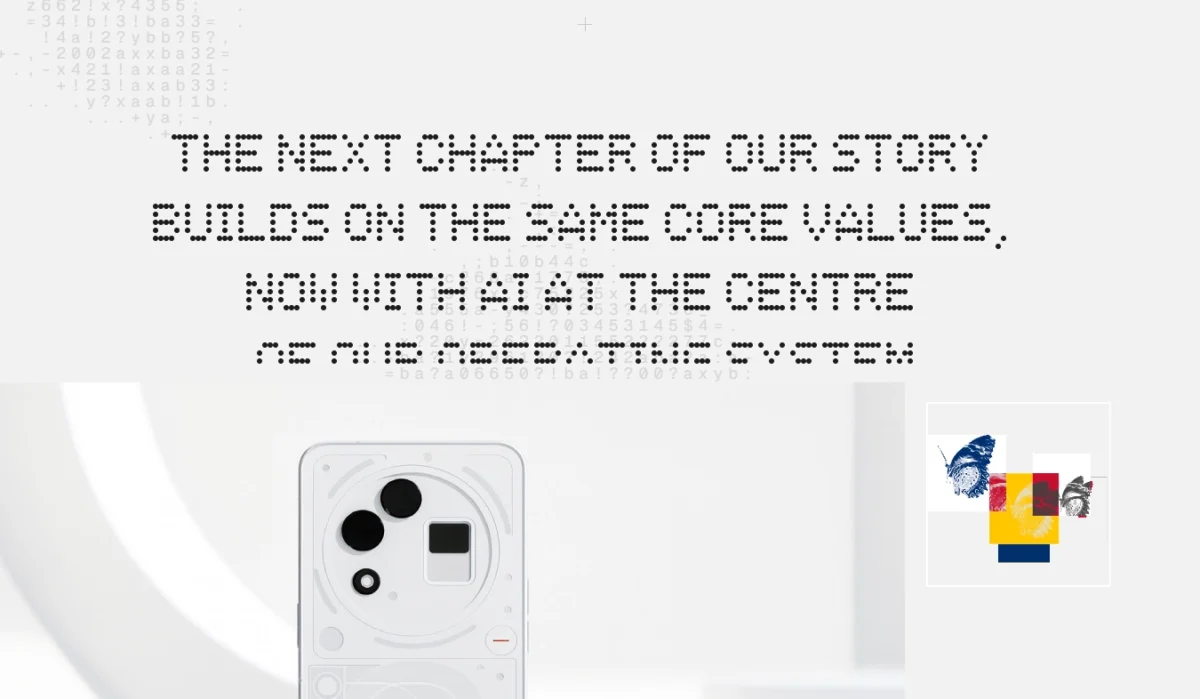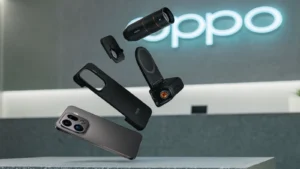Imagine your phone doesn’t just run apps — it creates them for you. That’s the vision behind Nothing’s Essential and Playground: software layers built so that your device molds itself to your daily habits, instead of you molding your habits to the device. This is the early blueprint of what the company calls an AI-native OS — not a full replacement for Android yet, but a bold rethinking of how operating systems could work.
What Are Essential & Playground — In Real Terms
Think of your current OS as a house with fixed rooms (apps) and hallways (menus). What Nothing is building is like a house that builds new rooms on demand, based on what you need.
- Essential is the umbrella layer bundling features like Essential Apps and Essential Space.
- Playground acts like a public workshop for users to create, share, and remix AI-built mini apps (widgets) using simple language prompts.
At present, users can only generate widgets, not full-screen apps. But the long-term vision is deeper integration. This shift was announced alongside the launch of Essential and its companion platform, Playground. The Verge covered how Nothing frames this as a “first step toward an AI-native OS.”
Why Nothing Calls It an AI-Native OS
Nothing isn’t claiming it’s built a brand-new kernel. Instead, it’s layering intelligence over Android — reshaping the interface and user workflows. According to reports, Carl Pei sees Essential as the company’s AI home base, tying together features like automated workflows, dynamic recommendations, and adaptive home screens. TechCrunch describes how Playground lets users generate widget-apps from prompts and modify their behavior.
The idea: you don’t search menus — the system anticipates, proposes, and builds what you need. This reorientation toward user intent, rather than forcing you to choose actions, is the core of an AI-first OS.
Strengths & Risks on the Road Ahead
✅ What’s Promising
- Accessibility for creators: Anyone can build custom widgets without coding. Android Authority notes that Essential Apps are effectively user-generated widgets powered by prompts. Android Authority
- Community-driven innovation: Playground’s remix model could accelerate creative app building.
- Contextual intelligence: The system could propose routines or automations automatically, based on your habits and context.
⚠️ What Could Break
- Speed & latency: Building elements on-the-fly may lag behind preinstalled apps.
- Stability & security: AI-generated logic must be safe and reliable.
- Ecosystem adoption: Key apps & services must adapt to the Essential layer, or users risk fragmentation.
- Overhype / execution gap: The vision is ambitious; delivering it at scale is non-trivial.
What the Future Might Look Like
In a few years, a phone might no longer show you app icons — it shows you what you need based on context.
- Your calendar, emails, notes, and camera might automatically fuse into a “Today Brief” interface.
- Custom dashboards tailor themselves for work, fitness, or travel — auto-generated via prompts.
- The same AI-native OS might scale to AR glasses, sensors, or even vehicles. 9to5Google reported that Nothing plans to build its own OS across devices beyond phones. 9to5Google
Still, Essential + Playground is an early sketch — the path from widgets to full system is long.
Frequently Asked Questions (FAQs)
Q1: Does Essential replace Android?
No — it’s built on top of Android. The core OS remains Android while Essential changes the layer above.
Q2: Who can use Playground?
Currently only on Nothing phones, excluding the original Phone 1 due to update constraints.
Q3: Is this real AI or just hype?
It’s a hybrid: real AI tools build simple apps now, but the full vision (responsive OS) is still aspirational.
Conclusion
Nothing’s Essential + Playground may not yet be a full AI-native OS, but it points toward a future where devices intuitively respond to our needs. Their move is more about rethinking how we interact with software than replacing Android entirely — but it’s a bold first draft of a system built for our intelligence, rather than us building intelligence for the system.
Key Takeaway: Essential and Playground envision an OS that builds itself around you — but its success hinges on performance, security, and real user adoption.
Last Updated on October 18, 2025 by Lucy




